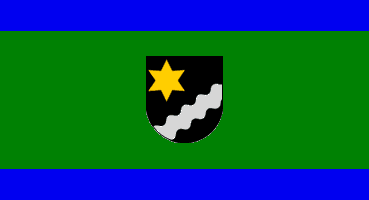Rantsilastani language
| Rantsilastani Rantsilastani | ||
|---|---|---|
| Pronunciation: | [ˈrɑntsilɑstɑni] | |
| Spoken in: | Shireroth | |
| Region: | Southeastern Yardistan | |
| Total speakers: | Unknown | |
| Langauge family: |
Iardic
| |
| Writing system: | Latin (Rantsilastani variant) | |
| Offical status | ||
| Offical language in: | Shireroth | |
| Regulated by: | None | |
| Langauge codes | ||
| MIC 639-1: | rsl | |
Rantsilastani is the language spoken by the people of Rantsilastan.
It is a conlang created by Gryphon Avocatio. It is related to Yardistani, Finnish, and Swedish. Syntactically, Rantsilastani is a right-headed language. Generally, sentences are in the Subject Object Verb order, but as the language is heavily declined these elements can be mixed up in most imaginable orders.
The language has undergone a number of changes since it was first conceived, especially after Gryphon left micronations and learned more about actual linguistics. In its earliest forms, it looked like this:
- Arikmetzlerÿ forstäkaisero në. Skoþalexanderÿ stroäkaisero naë. Vÿ ensäkaisero najë, tÿ kuveya në.
- Erik Metzler was the first Kaiser. Scott Alexander is the current Kaiser. It is unknown who will be the next Kaiser.
Nowadays, the same sentence would be rendered like this:
- Ariky Metzlery forsta kaisero në. Skoþy Aleksandery nuana kaisero naë. Vy ta nesta kaisero najë kuvejja në.
- Erik.NOM Metzler.NOM first kaiser.ACC be.PST. Scott.NOM Alexander.NOM now.GEN kaiser.ACC be.PRES. Who COMP next kaiser.ACC be.FUT unknown be.PRES.
Compare this to the same sentence in Yardistani:
- Aarik Metzler neja Kaiser primix. Xkos Alexandro ne Kaiser hrix. Ne kusabejix kje neje Kaiser proxix.
- Erik Metzler be.PST kaiser first. Scott Alexander be.PRES kaiser current. be.PRES unknown who be.FUT kaiser next.
The language is still very underdeveloped, lacking heavily in vocabulary (most of which has been loaned from Scandinavian, as well as Old English and Finnish) as well as useful declensions.
Noun Declension
Nouns in Rantislastani are fully declined; that is to say, the words change form depending upon their syntactic position in a sentence, generally by taking a suffix. Taking a word like 'boko' book, we get various different forms:
- Nominative: boky (i.e. the subject of a sentence)
- Accusative: boko (i.e. the direct object)
- Dative: boktil (i.e. the indirect object, as well as a destination)
- Genitive: bokna (i.e. like the possessive -'s suffix in English)
- Locative: boki
- Ablative: bokaf
There are more case endings than this--these are meant only to serve as examples. The citation forms of nouns in Rantsilastani (that is, the dictionary form) is the accusative form.
Vowel Harmony
Rantsilastani exhibits a form of vowel harmony not dissimilar to that of Finnish, though it is somewhat similar. The basic rules are as follows:
- A vowel (excluding /a/ and /i/) has the same value for [round] as the vowel that proceeds it.
- A vowel has the same value for [front] as the vowel that proceeds it.
The consequence of this is that words will change pronunciation based upon what suffix they might have. Take for example the words below:
- Fronting: boko = ['bo.ko] -> boky = ['bø.ky]
- Rounding: kato = ['kɑ.to] -> katy = ['ka.ty]
Due to the vowel distribution of Rantsilastani, both rounding and fronting cannot affect the same vowel. However, the process can create homophones with words containing /y/, /e/ and /o/. For instance, the words 'huso' and 'hyso' are pronounced differently, but in their Locative forms they are pronounced the same way--'husi' and 'hysi' are both ['hy.si]. Likewise /o/ can is fronted to [ø], and /e/ is rounded to [ø].
It should be noted that the vowel phoneme /a/ effectively blocks roundness harmony, but /i/ is transparent. That means that if there are rounded vowels after /i/, vowels coming before /i/ will be rounded too.
Though this all seems complex, the changes that occur are systematic and easily remembered.
